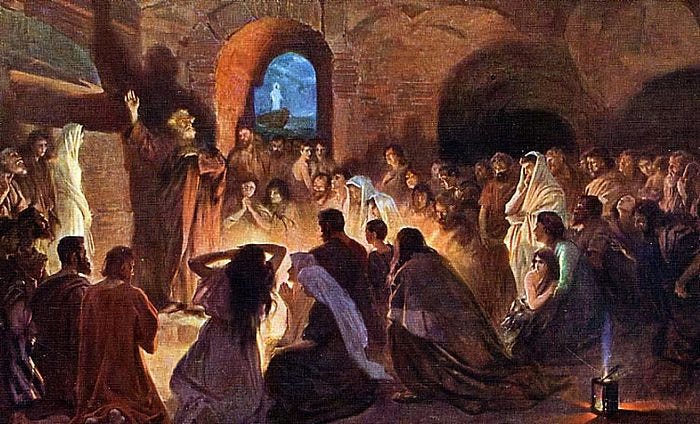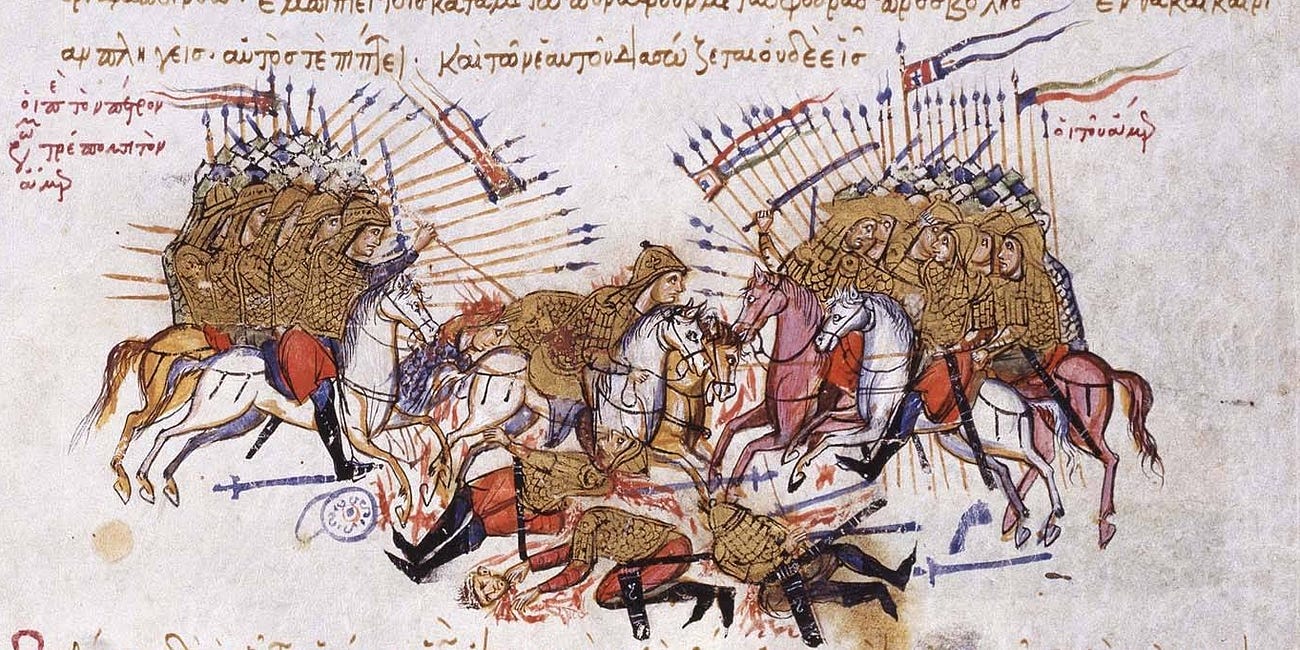Sociological view of Christianity's triumph
Review of The Triumph of Christianity: How a Forbidden Religion Swept the World by Bart Ehrman
I have long wanted to understand what need Christianity fulfilled and why it displaced paganism in just a few generations, at least in the Graeco-Roman civilization. It is a great mystery to me and I have spent much of the last decade seeking answers.
In his scholarly work, Bart Erhman has examined the nature of Christ, his early followers, and the way that the religion evolved from the beginning. He has the hard critical edge of the lapsed fundamentalist Christian who has come to question his beliefs through his research, about which he is quite open and explicit. His point of view is now entirely secular.
Ehrman starts with a history, including an overview of the various Christian camps that emerged and in particular, the Roman context. Unfortunately, he presents nothing to explain whether anything was changing in the citizenry of Rome, some emerging necessity that offered fertile ground for a Christian conversion at that precise moment. Apparently, Erhman does not think much of the impact on Romans of their ongoing crisis of political legitimacy – emperors were habitually engaging in civil war as they tried to gain and consolidate their power and much better-organized barbarians were threatening to overrun the Empire itself. (This crisis is a conventional explanation for the need of a centralized authority to arbitrate and transmit legitimacy via authoritarian Christianity; Ehrman does not refute this commonplace argument, but seems to sidestep it.)
Instead, Ehrman concentrates on sociological factors. First, there is the philosophical certainty that Christianity offered, the clear answer to fear and instability endemic to everyday life – Christianity categorically denied the legitimacy of all others' faiths.
Second, it addressed the concerns not exclusively of the elite – the educated notables and holders of the keys that ran pagan shrines, festivals, and the like – but included the working classes, the common people. There is a very interesting discussion of Paul's evangelical methods: while he preached in synagogues on occasion, his principal activity was talking to his fellow workers and craftsmen about Christ as he made animal-hide tents alongside them and wandered.
Third, once established, small groups of Christians worked in their localities to convert others, offering charity in new ways but also fellowship. In this way, congregations expanded slowly, an accumulation that eventually exploded into exponential growth.
Fourth, the Christians were organized and well financed.
Fifth, though they survived occasional efforts to stamp them out or repress them, for the most part they were left alone.
Sixth, the conversion of Constantine was crucial, allowing Christians to practice openly and without threat, in effect as legally recognized co-equals of the various pagan groups. This occurred at a moment of critical mass, sparking genuinely explosive growth during the 4th Century CE, becoming unstoppable in the 5th.
Ehrman’s analysis is more than just these bare bones of course, but that is the nub of his argument. He also discusses what the pagan religions and flourishing mystery cults did and how they operated: in direct contrast to dogmatic Christian certainties and ideological exclusivity, they were eclectic, more or less tolerant, unwritten, and flexible – more easy going. There are also in depth discussions of the principal players, from Paul to Diocletian, Constantine, Julian the Apostate, and Theodosius; their characters really mattered, as Ehrman stresses, and if they had operated in a different manner, the outcome could have gone in any number of directions.
This book is a combination of sociological analysis and an explanation of a new religious ideology. Unfortunately, I continue to feel that something is missing – that need, that itch that Christianity uniquely scratched. In the end, this is a conventional view. While I was disappointed that I still have no satisfactory (viz. secular) explanation, the book served as a nice review of the academic arguments regarding what was occurring at the end of antiquity. It is at the early undergraduate level, so can be taken as a splendid introduction to the field. Ehrman, as always, is a wonderful writer. I just wish he had dug deeper.
Related reviews:
Intellectual history on the political impact of early Christianity
This book offers a detailed interpretation of what Christianity meant and the political impact that it had. Siedentop takes the reader on a long historical inquiry, from before the Bronze Age to the end of the Middles Ages and supposedly to the present day. While disagreeing with much of it, I was riveted by the ideas from the first page.
The socio-political context of early Christianity, with Satan as a backdrop
This book recapitulates the emergence of Christianity in context, detailed and vivid, from its origins in Palestine to its expansion westward. It focuses on the use of Satan, first as a kind of gadfly or tester of belief in the Jewish and Pauline traditions to the "cosmic war" of later Christianity, according to which opposition from without and within …
Splendidly incisive essay on the eclipse of classical culture
This is one of those history books that defines the era, setting a standard that is either accepted or opposed by all who follow. Because the end of the classical culture is one of the turning points that most fascinates me, this book was a particular pleasure, at once an over-arching synthesis yet accurate in its evocation of detail.
Paul's role in the establishment of Christianity
This is a scholarly look at the role of Paul in the formulation of Christianity, which he carried out in accordance with a vision that he had of Jesus – his spirit talked to Paul, leaving detailed instructions. Tabor essentially argues that Paul, who never met Jesus, is responsible for the transformation of what was a Jewish messianic movement into some…
How Roman Emperors used Christianity to enhance their power
The title of this book made me fear it was a New Atheist screed that would blame everything on Christianity. This is a disservice. After long hesitating to pick it up, I was delighted to find a detailed and profound inquiry into one of the most significant periods in western history, i.e. how Christianity triumphed over previous religions and what it me…
From Paganism to Christianity
I have long wanted to understand how – and why, from a secular perspective – Christianity spread throughout the Roman Empire and society, eventually coming to dominate them in a way that paganism never did. Before Christianity, paganism was defined as things “rustic”, of the countryside. It did not refer to an organized religion or even a set of beliefs.…










